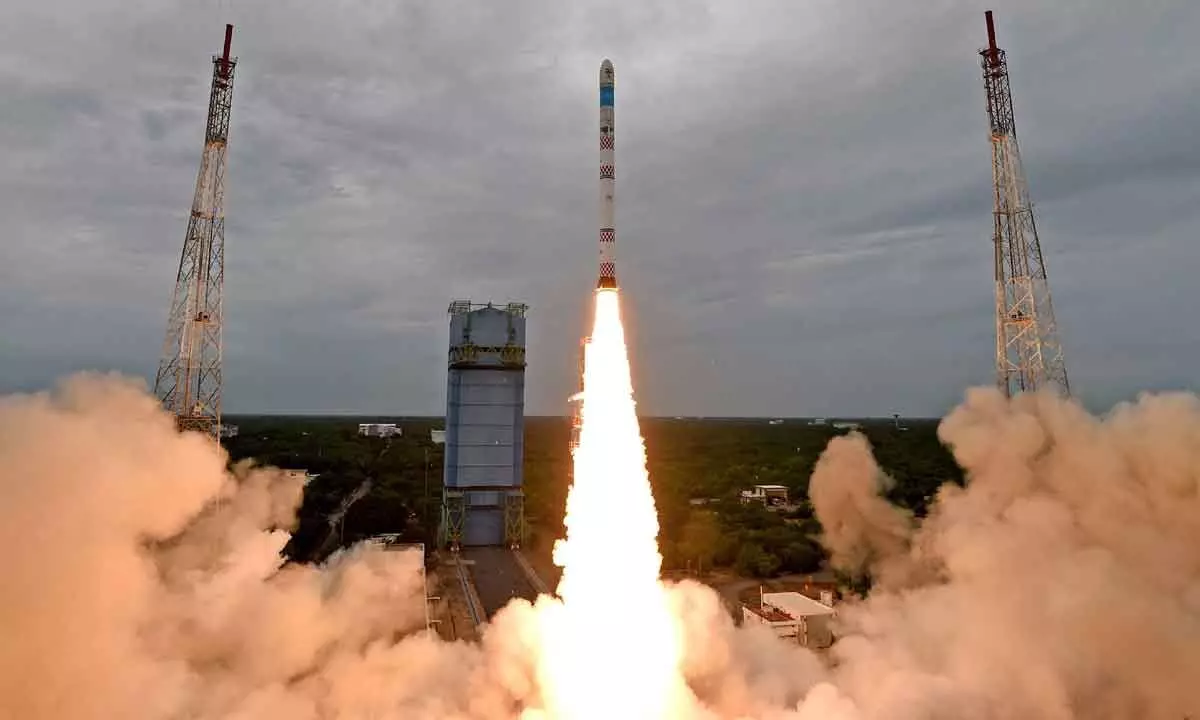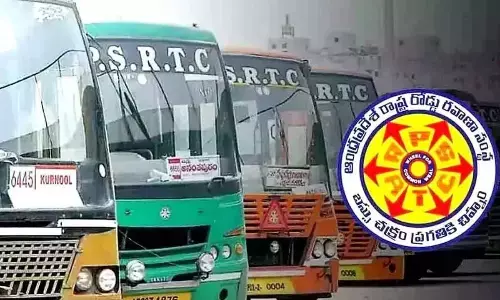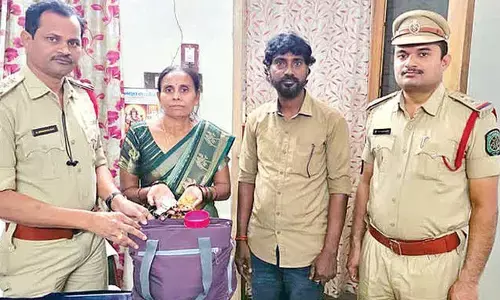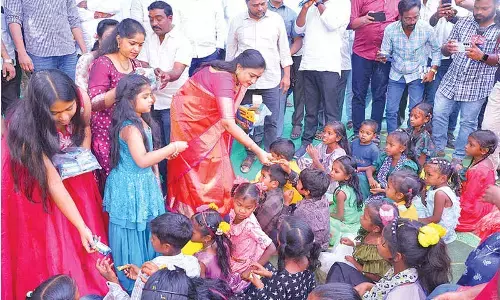Setback to ISRO as maiden SSLV mission suffers data loss

ISRO on Sunday said the satellites onboard its maiden SSLV “are no longer usable” after the SSLV-D1 placed them in an elliptical orbit instead of a circular one.
Sriharikota: The Indian Space Research Organisation (ISRO) on Sunday said the satellites onboard its maiden Small Satellite Launch Vehicle (SSLV) "are no longer usable" after the SSLV-D1 placed them in an elliptical orbit instead of a circular one. The space agency said a committee would analyse and make recommendations into Sunday's episode and with the implementation of those recommendations "ISRO will come back soon with SSLV-D2." "SSLV-D1 placed the satellites into 356 km x 76 km elliptical orbit instead of 356 km circular orbit.
Satellites are no longer usable. Issue is reasonably identified. Failure of a logic to identify a sensor failure and go for a salvage action caused the deviation," ISRO said in an update on its official Twitter handle.
The space agency added that a detailed statement by ISRO Chairman S Somanath will be "uploaded soon." In its maiden SSLV mission, the launch vehicle carried The Earth Observation Satellite EOS-02 and the co-passenger student satellites AzaadiSAT.
SSLV had suffered 'data loss' in its terminal stage, after performing "as expected" in all stages. It had earlier after lifted off from the spaceport here on Sunday morning.
EOS-02 and AzaadiSAT
The Earth Observation Satellite EOS-02 and the co-passenger student satellites AzaadiSAT are the major payloads for the SSLV.
The EOS-02 is an experimental optical remote sensing satellite with a high spatial resolution. It is to realise and fly an experimental imaging satellite with a short turnaround time and to demonstrate launch-on-demand capability. EOS-02 belongs to the microsatellite series of spacecraft.
The AzaadiSAT is an 8U CubeSat weighing around 8 kilograms. It carries 75 different payloads each weighing around 50 grams. Girl students from rural regions across the country were provided guidance to build these payloads.
The payloads are integrated by the student team of 'Space Kidz India'. The ground system developed by 'Space Kidz India' will be utilised for receiving the data from this satellite, ISRO said.
It is not the first time for ISRO to face a setback on its maiden launch missions as PSLV -- dubbed as one of the trusted workhorses for the space agency -- was not successful in its first flight way back on September 20, 1993.
After its first successful launch in October 1994, PSLV emerged as the reliable and versatile launch vehicle of India with 39 consecutively successful missions by June 2017. It had successfully launched the CHANDRAYAAN-1 in 2008 and also the Mars Orbiter Spacecraft in 2013 that later travelled to the Moon and Mars, respectively.

















